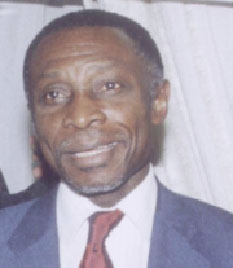Front bencher for the opposition coalition, A Partnership for National Unity (APNU) Carl Greenidge says that while the party has no plans to attend the Caribbean Financial Action Task Force (CFATF) meeting to put forward its arguments as to why it did not support the anti-money laundering Bill, it plans to write the body outlining its rationale.
The Anti-Money Laun-dering and Countering the Financing of Terrorism Bill 2013 was defeated in the House on Thursday following months of deliberations in a special select committee. Both Government and Opposition are trading blame for the breakdown of the work of the committee examining

the legislation meant to bring the country in compliance with CFATF standards.
Following the defeat, Government has been on a media blitz laying blame at the doorstep of the two opposition groups – APNU and Alliance for Change (AFC).
The latter took the position months ago that without the establishment of the Public Procurement Commission (PPC), they would not be supporting the anti-money laundering law.
The Opposition in turn blamed Government for trying to shut it out of the process by scheduling committee meetings at times when Opposition members would not be available. Speaking to the Stabroek News in an invited comment on Saturday, Greenidge – a former Finance Minister of Guyana during the former PNC administration – said, “We have no plans to attend the meeting but we will be writing [the CFATF].”
“I think that we would want get our position clear that we are not against legislative changes,” he said. “While we understand that there are concerns, CFATF needs to have a better understanding of the local conditions,” he said.
We want Government to focus on enforcement,” he said. “Matters of governance have to be addressed. These include the putting in place of the Ombudsman, confirming the Chief Justice, the Auditor General among others,” he said. He noted that those officers are integral in the fight against money laundering and not having them in place sends the wrong message about how serious Guyana is in this fight.
“If CFATF understands the local conditions they will understand that a fight against corruption is a fight to restore lawful Executive behaviour,” Greenidge said. He added that had proper systems for Governance been in place the Government might not have lost US$30 million when CLICO went belly up.
Greenidge said that the diplomatic missions must also apprise the external agencies – such as CFATF – of the prevailing local conditions.
Greenidge said that following an experience he had in one of the local banking institutions, he has no doubt that some of the banks have begun taking what he believes to be unwarranted actions which may be unrelated.
“There are many things that the local financial sector sought to take advantage of and which are unwarranted,” he said.
He said that the CFATF has a responsibility to understand the implications of the steps they take against countries for not being compliant with their deadline. “The CFATF need not implement all of their sanctions at once,” said Greenidge.
Further, he said that it is ridiculous to suggest that the CFATF will sanction Guyana for not having the new legislation in place when the old legislation has elements which have never been implemented, some 13 years following its passage.





